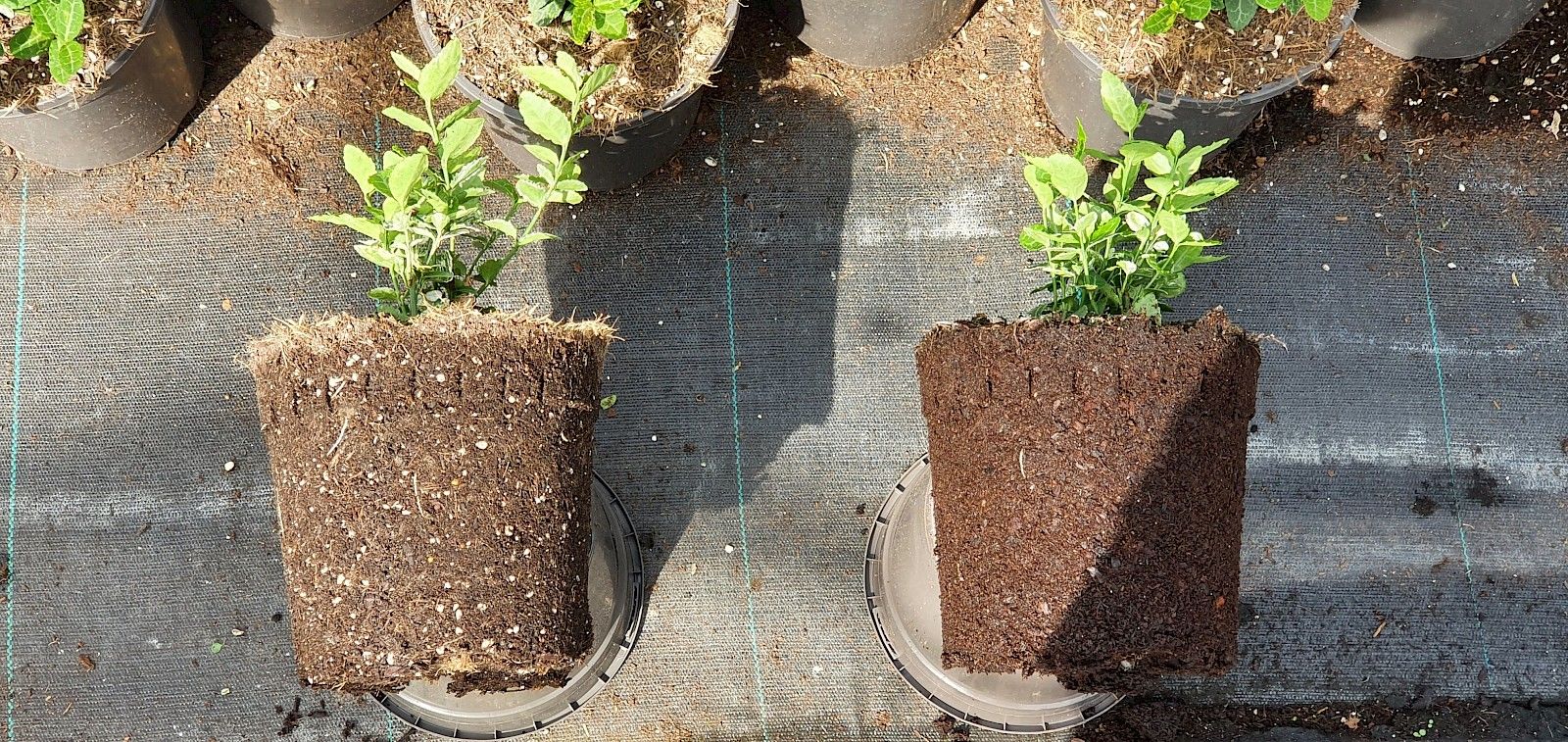To peat or not to peat
The presentation titled "To peat or not to peat" was delivered by BOL, a specialist in substrates, during the study club meeting of the Boomteelt Studieclub Horst aan de Maas. The presentation took place following a tour of the newly established container fields at A. Bouman Tuinplanten BV in Wijk en Aalburg. BOL, the main supplier of substrates to Bouman, was invited by COMPAS-AGRO to provide insights into the theme of peat reduction. Eric Forschelen, an advisor at BOL, also gave a brief summary of the trials conducted at Bouman in 2021, including the use of organic fertilizers.
During the presentation, the current theme of peat reduction was discussed. The Dutch Association of Potting Soil Manufacturers has set a goal to achieve 35% peat reduction in substrates by 2025. In the United Kingdom, there is currently an even stronger lobby for 100% peat-free substrates. The German supermarket chain Lidl recently announced that starting from January 1st, 2023, they will only offer plants grown in substrates with a maximum of 50% peat.
Eric Forschelen mentioned that BOL's ambition is to achieve 35% peat reduction by 2025. However, he also highlighted that this is a significant challenge for potting soil manufacturers. Currently, 4.7 million m3 of substrate is produced in the Netherlands. A 35% reduction in peat would require 1.6 million m3 of renewable, but also safe and applicable, alternative materials.
Forschelen also outlined the cultivation-related challenges of peat-free substrates for growers. For instance, the watering strategy needs to be adjusted as peat-reduced substrates have less moisture buffering capacity. A too-small moisture buffer in the substrate can become a problem in the supply chain. Additionally, the nutrition during cultivation needs to be approached differently by both the potting soil manufacturer and the grower. Peat has the unique property of buffering nutrients like a kind of "battery." Many peat substitutes have a significantly smaller buffering capacity, requiring more precise fertilization during cultivation. This challenge may be further exacerbated by the slightly higher acidity of peat-free substrates, affecting the availability of various elements.
Forschelen mentioned that through trials conducted by BOL in collaboration with tree nursery Jonkers Elshout BV, significant experience has been gained with peat-free substrates. For example, using moisture sensors, a different watering strategy has been developed that better suits peat-free substrates. These trials have also provided valuable insights into the nutrient balance in peat-free substrates. However, according to the advisor, there is still room for further development in the area of nutrition.

Organic fertilization for roses
In collaboration with Delphy and ICL, BOL conducts annual trials at Bouman's nursery with the aim of achieving even higher plant resilience for the roses grown by Bouman. In 2021, a trial was conducted comparing two organic fertilizers with coated fertilizers. To some extent, the organic fertilizers proved to be effective. However, after a cultivation period of 4 months, both tested organic fertilizers no longer met the crop's needs. This was evident from the analysis results and the appearance of the plants themselves. Although at Bouman, the majority of the roses have already reached consumers after 5 months of cultivation, Dirk Bouman consciously chooses to use coated fertilizers. This allows Bouman to deliver a healthy product that brings long-lasting garden enjoyment to the consumer.
For inquiries regarding (peat-free) substrates, you can contact Eric Forschelen at +31 6 30 22 08 02 or email at info@bolpotgrond.nl.